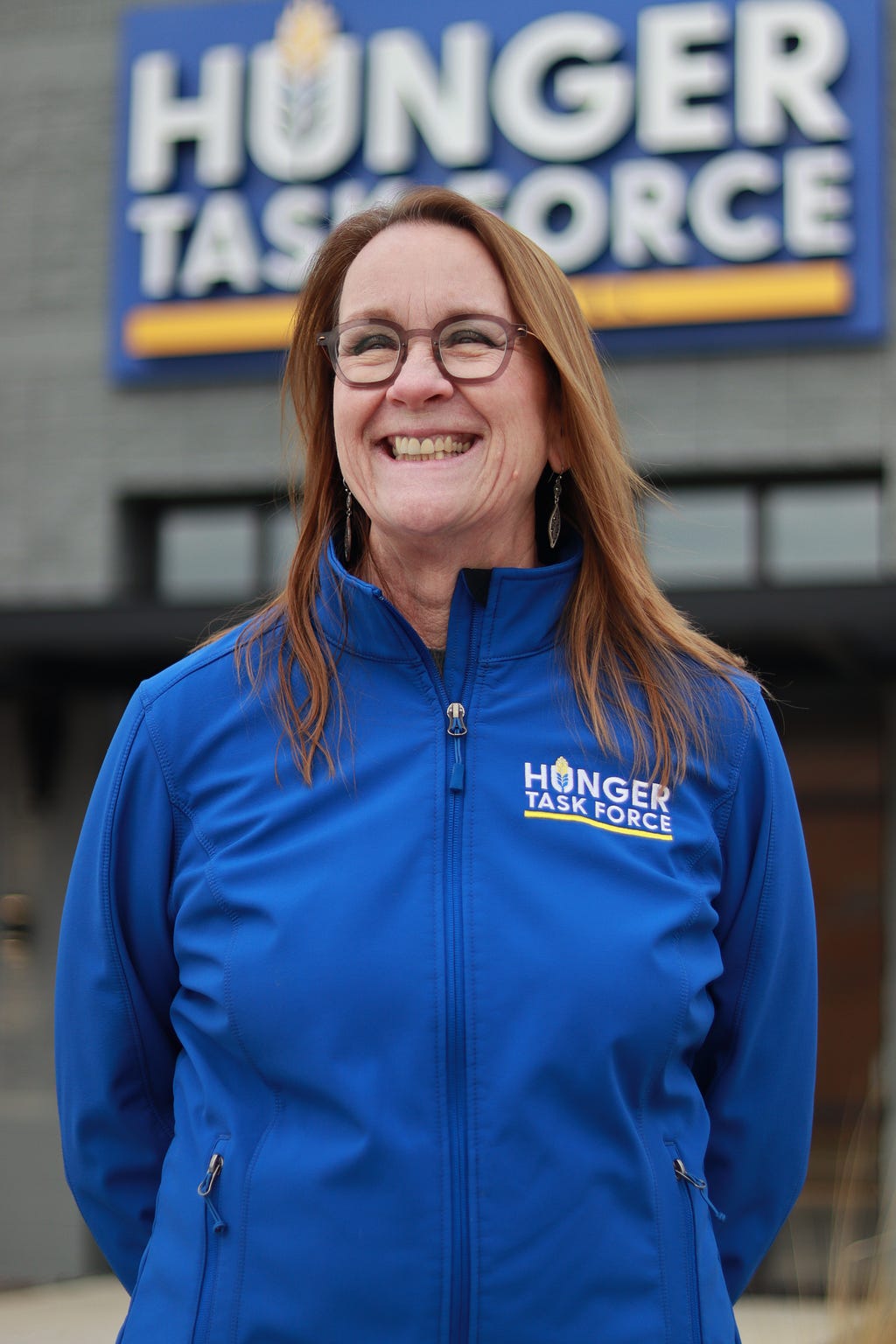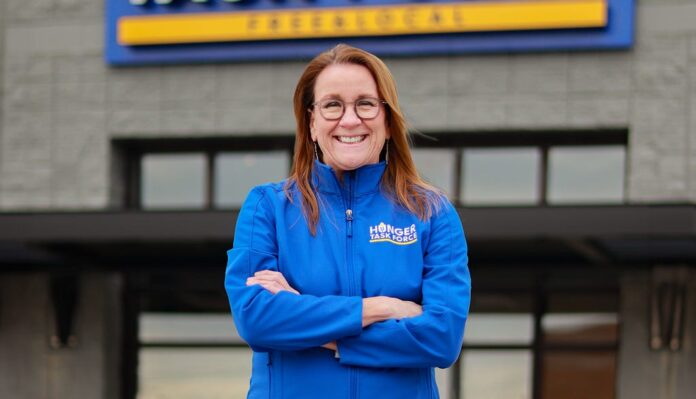How Sherrie Tussler Of Hunger Task Force Is Helping To Address The Growing Challenge Of Food Insecurity
An Interview With Martita Mestey
Ignore the competition. They are back drafting you and besides bringing you down they aren’t very good at copying your work.
In many parts of the United States, there is a crisis of people having limited reliable access to a sufficient quantity of affordable, nutritious food. As prices rise, this problem will likely become more acute. How can this problem be solved? Who are the leaders helping to address this crisis?
In this interview series, we are talking to leaders who are helping to address the increasing problem of food insecurity who can share the initiatives they are leading to address and solve this problem.
As a part of this series, we had the pleasure of interviewing Sherrie Tussler.
Sherrie Tussler is the Chief Executive Officer of Hunger Task Force. She has led the organization since 1997 — a time when Milwaukee was experiencing record hunger. Hunger Task Force works to prevent hunger and malnutrition by providing food to people in need today and advocates for policies that will help achieve a hunger-free community in the future. Tussler has remained steadfast in her goal — to defend people against hunger.
Thank you so much for doing this with us! Before we dig in, our readers would like to get to know you a bit more. Can you tell us a bit about your “backstory?” What led you to this particular career path?
I had planned to become a high school art teacher, but President Ronald Reagen got elected and eliminated my student job program. That resulted in me dropping out of school in favor of working to keep a roof over my head. In my early career, I worked with troubled teens, people with serious mental illness and as a crisis counselor. The last job led to a promotion as a sexual assault counselor inside the hospital emergency room. I found my voice there. Purposeful violence as a means of self-expression really made me angry. Eventually I became the founding director of a homeless shelter, where I worked through Wisconsin’s much lauded “welfare reforms.” To me, these reforms were a demonstration of State violence.
Can you share the most interesting story that happened to you since you began your career?
The day I became a radical. There was a national march in Washington DC called “Housing Now!” It was 1989 and people like Robin Willliams and Whoopie Goldberg were on stage demanding an end to homelessness in America. I was operating a homeless shelter where people slept on mattresses on the floor. We had no proper bathrooms for showering. I attended the “Housing Now!” march. As people gathered on the National Mall, I saw many homeless individuals had walked from New York to attend. The crowd was intense. On that day I knew I had chosen a path to become a radical.
Are you able to identify a “tipping point” in your career when you started to see success? Did you start doing anything different? Are there takeaways or lessons that others can learn from that?
I wrote a large grant proposal to the United States Department of Housing and Urban Development. It was a national competition and only the groups from large cities won. I never learned to type and wrote all twenty-three submissions with one finger. We were awarded $2.9M. We built and staffed what was then acclaimed to be “the most modern homeless shelter” in our state. After that I was recognized as a good fund raiser.
Takeaway — You never get anything that you don’t ask for.
What I started doing differently — I became really assertive.
None of us are able to achieve success without some help along the way. Is there a particular person to whom you are grateful who helped get you to where you are? Can you share a story about that?
I have had a lot of help from many and am very thankful. Donna Tartagni, my high school guidance counselor, paid for my ACT test and bought me a dress to wear at my high school graduation. She talked openly with me about values.
You are a successful leader. Which three-character traits do you think were most instrumental to your success? Can you please share a story or example for each?
- Tenacity: I am generally fearless. I work hard and am now pretty worry free. This lets me plough through situations without getting discombobulated. It helps me be a strong leader.
- Instinct: I trust my first thought and am very observational. I watch what is said, how it is said and if people remain silent. I am a naturally good guesser and can predict outcomes. This helps me plan and guide others.
- Honesty: My father taught me the definition of honesty, which is telling people what they need to know. This level of truth telling has positives and negatives. Along with it requires integrity, care, and discretion.
Can you please give us your favorite “Life Lesson Quote?” Can you share how that was relevant to you in your life?
“Wish in one hand and sh*t in the other one; see what you get more of.” My dad used to say that when we wished for something. It was about the value of working for what you want and not making excuses for what you don’t have.
Ok super. Let’s now shift to the main part of our discussion. Can you describe to our readers how your work is helping to address the challenge of food insecurity?
First, I don’t say “food insecurity.” I say hunger. My work helps address hunger by creating social policy reform and changes to the way decision makers think about poverty and hunger. We research, educate, organize and lobby to end hunger by making the federal nutrition programs and food systems in general more accessible and run better.
Can you share something about your work that makes you most proud? Is there a particular story or incident that you found most uplifting?
I am proud that Hunger Task Force is Free & Local. What we mean by this is everything we do is free of charge, and we were created as a local community response to hunger. Lots of people don’t understand that food banks charge food pantries for food. This is a business model that creates inequity for the poorest of food pantries that serve the poorest of people. Most free, local and independent food banks become franchised by Feeding America. As a result they lose their voice, brand and integrity. I am proud that we are independent, have a voice and have maintained our integrity.
I’d like to share an uplifting story. During the pandemic we assisted Wisconsin’s Tribal Nations to receive food. One Tribal leader wrote a letter acknowledging our efforts stating that we had respected them and for the first time the Indigenous community wasn’t placed at the back of the line. That felt both good and right.
In your opinion, what should other business and civic leaders do to further address these problems? Can you please share a few things that can be done to further address the problem of food insecurity?
Hunger and poverty are ignored by business leaders and elected officials — they establish foundations or grant programs to leave this work to charity. The global pandemic forced everyone to think about food access and hunger. We learned a lesson about growing and sourcing local foods. We can support small farmers, food cooperatives and food producers by purchasing their food and giving the food to people in need. Government funds and foundation dollars could be targeted to supporting local agriculture, local food systems and local need.
Are there other leaders or organizations who have done good work to address the challenge of food scarcity? Can you tell us what they have done? What specifically impresses you about their work?
First off, food is not scarce in the United States. However, hunger persists especially for children and older adults. The leaders and organizational force we should rely upon are within government. At the federal level this is the United States Department of Agriculture. With sound guidance, I have seen the Supplemental Nutrition Assistance Program work to effectively end hunger. There were and are good leaders in these places. Some leaders I have admired most are Ollice Holden, Kevin Concannon, Timothy English and Alan Shannon.
If you had the power to influence legislation, are there laws that you would like to see introduced that might help you in your work?
School lunch and breakfast provided to all children at no cost was proven effective during the pandemic. It should be the law of the land and not just in a few states. Similarly, increased SNAP payments were provided to ease hunger for older Americans and families with children. This legislation would be very expensive, but even targeting increased benefits for seniors and differently abled people could make a big difference. Finally, authorizing waivers for pilot programs to States to allow a State-based commodity purchasing program under The Emergency Food Assistance Program or Commodity Supplemental Food Program would support local agriculture while reducing waste within these federal commodity programs. Each of these ideas is proven and could become law.

What are your “things I wish someone told me when I first started” and why?
- Keep your name — it’s your identity.
- Always do the right thing.
- Ignore the competition. They are back drafting you and besides bringing you down they aren’t very good at copying your work.
- Don’t worry. It never helps.
You are a person of enormous influence. If you could inspire a movement that would bring the most amount of good to the most amount of people, what would that be? You never know what your idea can trigger.
This question made me dream of a jingle I heard as a child:
I’d like to buy the world a home
And furnish it with love
Grow apple trees and honey bees
And snow white turtle doves
I’d like to teach the world to sing
In perfect harmony
I’d like to buy the world a Coke
And keep it company
That’s the real thing
On a more serious note, I would challenge people to see food as power and then share their power. They could do this by giving food, growing food, influencing food systems or simply voting. Being aware that hunger is prevalent in all communities and demonstrating thought and action would be critical to ending it.
Is there a person in the world, or in the U.S. with whom you would love to have a private breakfast or lunch with and why? He or she might just see this, especially if we tag them. 🙂
I would have loved to meet John Prine, but he is gone now.
How can our readers further follow your work online?
This was very meaningful, thank you so much, and we wish you only continued success.
How Sherrie Tussler Of Hunger Task Force Is Helping To Address The Growing Challenge Of Food… was originally published in Authority Magazine on Medium, where people are continuing the conversation by highlighting and responding to this story.


